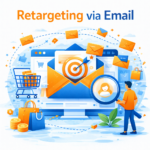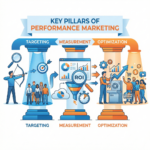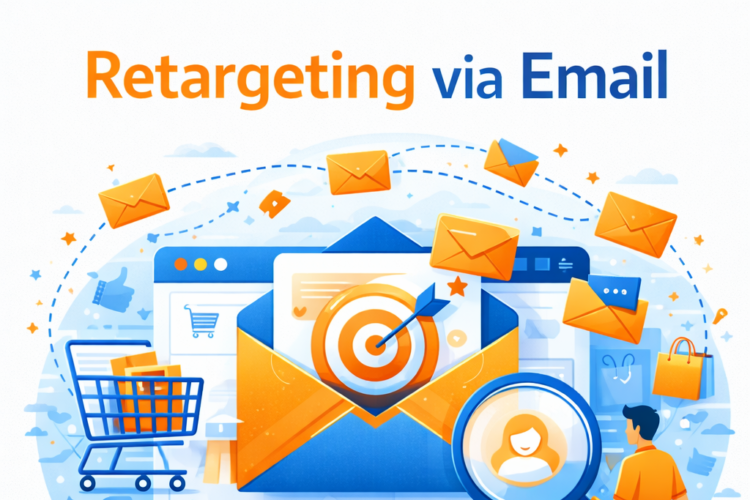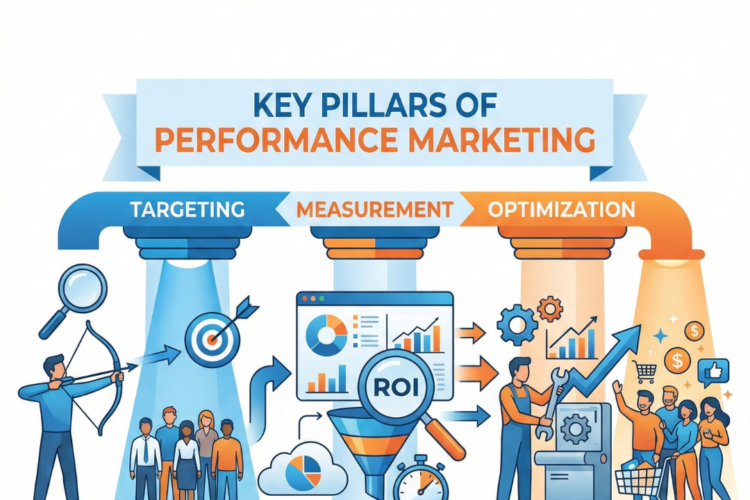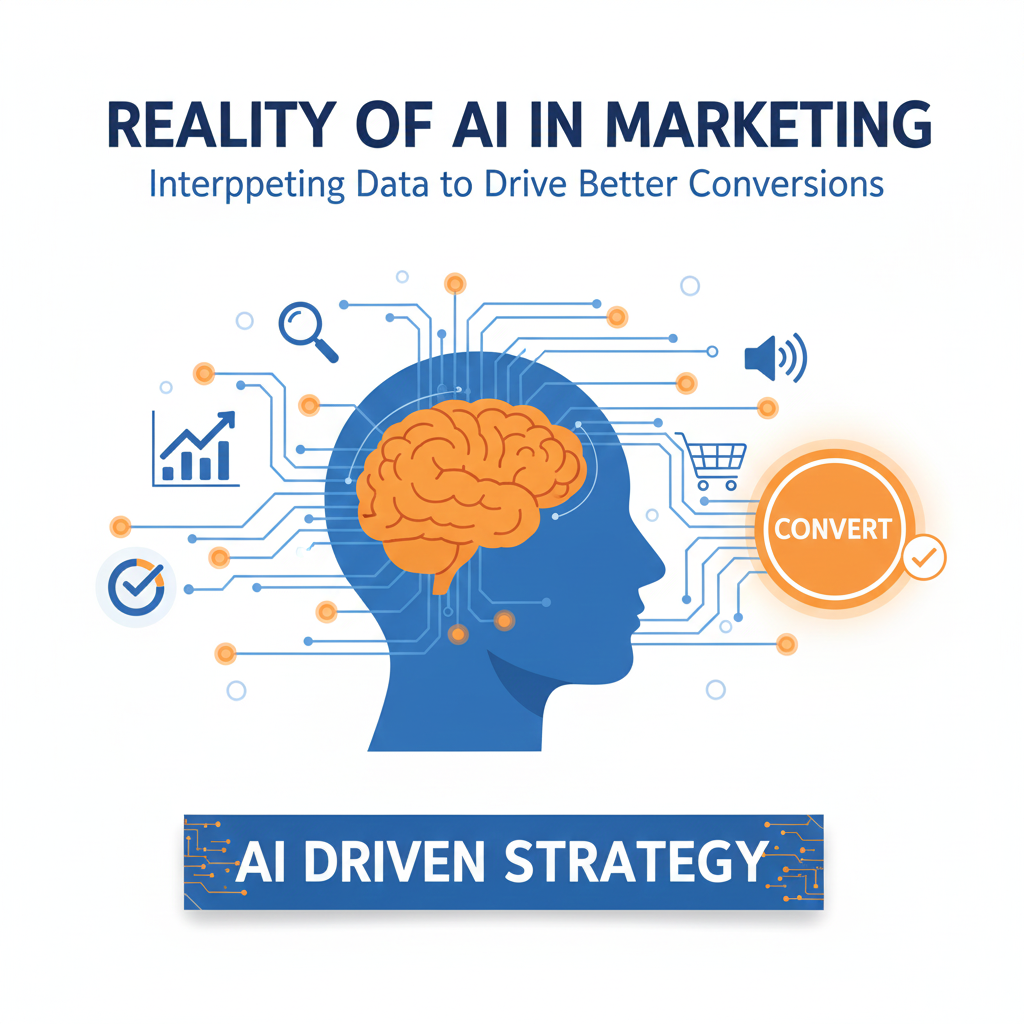
The Reality of AI in Marketing: Hype vs. Practical Impact
Introduction: Cutting Through the Buzz
Artificial Intelligence (AI) is no longer a futuristic concept confined to sci-fi movies. In marketing, it’s being hailed as a revolution—transforming everything from customer insights and content creation to personalization and predictive analytics.
However, amid the excitement, a crucial question arises: What is the real impact of AI in marketing today? This article dives deep into the practical applications, limitations, benefits, and misconceptions around AI in marketing, helping you distinguish the hype from reality.
1. The Rise of AI in the Marketing World
AI’s popularity in marketing has grown for a few key reasons:
-
Explosion of data: Marketers now collect massive amounts of data through websites, apps, emails, ads, and social media.
-
Demand for personalization: Consumers expect tailored experiences.
-
Need for automation: Manual processes can’t scale fast enough in the digital age.
-
Advances in computing: Machine learning (ML), deep learning, and natural language processing (NLP) have matured, making AI more accessible.
Common Use Cases
-
Chatbots & Virtual Assistants
-
Predictive Analytics
-
Email Campaign Optimization
-
AI-Generated Content (Text, Image, Video)
-
Customer Segmentation
-
Ad Targeting and Bidding
-
Sentiment Analysis
-
Voice & Visual Search
2. AI’s Core Capabilities in Marketing
a) Data Analysis at Scale
AI excels at processing large datasets to uncover trends, correlations, and opportunities. It can digest what would take a human team weeks in just minutes.
Real Use Case: AI in tools like Google Analytics 4 surfaces predictive insights such as which user segments are likely to churn or convert.
b) Hyper-Personalization
AI allows brands to deliver real-time personalized experiences across platforms. Recommendation engines like those used by Amazon and Netflix are built on AI models.
In Marketing: Dynamic content personalization in emails, websites, or mobile apps based on user behavior.
c) Predictive Analytics
AI can forecast customer behavior, product trends, and campaign outcomes by recognizing patterns in historical data.
Example: Predicting which leads are most likely to convert based on past interaction behavior.
d) Natural Language Generation (NLG) & Processing (NLP)
Tools like ChatGPT, Jasper, and Copy.ai generate blog posts, ad copy, or email subject lines in seconds. NLP also powers chatbots and sentiment analysis.
3. AI-Powered Tools Transforming Marketing
Here are real tools used in AI-driven marketing:
| Function | Tool | AI Feature |
|---|---|---|
| Content Creation | Jasper, ChatGPT | Text generation using NLP |
| Email Marketing | Mailchimp, Klaviyo | Predictive send times, segmentation |
| Ad Optimization | Meta Ads, Google Ads | Smart bidding, ad performance prediction |
| SEO | SurferSEO, Clearscope | AI-driven content scoring |
| Analytics | HubSpot, Salesforce Einstein | Customer behavior prediction |
| Social Media | LatelyAI, Brandwatch | AI-generated posts, sentiment monitoring |
| Chatbots | Drift, Intercom | NLP-powered conversations |
4. The Benefits of AI in Marketing
✅ Efficiency Gains
AI automates repetitive tasks like A/B testing, report generation, or audience segmentation—freeing marketers to focus on strategy.
✅ Enhanced Customer Experience
Real-time personalization powered by AI improves UX and conversion rates.
✅ Improved ROI
Predictive analytics reduce ad waste, improve targeting, and optimize campaigns for better returns.
✅ Better Decision-Making
AI reduces guesswork by providing insights backed by data rather than gut feeling.
✅ 24/7 Engagement
Chatbots and recommendation engines run 24/7, offering round-the-clock support and upselling.
5. The Limitations and Real-World Challenges
❌ Data Dependency
AI is only as good as the data it learns from. Poor data quality = poor results.
❌ Lack of Context
AI can misunderstand nuance, tone, or cultural relevance. It might generate grammatically correct but emotionally tone-deaf content.
❌ Black Box Problem
Marketers often don’t understand how AI arrived at a recommendation or decision—leading to trust and accountability issues.
❌ Over-Automation
Over-reliance on AI can harm brand authenticity and human connection.
❌ Ethical & Privacy Concerns
AI systems may inadvertently reinforce bias or misuse customer data. With rising regulations (like GDPR), misuse can have legal consequences.
6. Hype vs. Reality: What Marketers Should Know
| Hype | Reality |
|---|---|
| AI will replace marketers. | AI assists, not replaces. It needs human guidance. |
| AI can do everything. | AI is great for specific tasks, not full strategies. |
| AI-generated content is always perfect. | Content often needs editing and supervision. |
| AI personalizes automatically. | It needs the right data and triggers set up first. |
| AI guarantees better performance. | Only when used wisely with strong marketing principles. |
7. Future Outlook: Where AI in Marketing Is Headed
a) Conversational Marketing Will Dominate
Voice search, AI-powered chatbots, and conversational UIs are redefining how customers interact with brands.
b) Generative AI for Creative Tasks
Expect to see AI increasingly used to generate videos, music, and brand visuals. Tools like Sora (video), MidJourney (images), and Synthesia (avatars) are leading the way.
c) AI-Powered Predictive Lead Scoring
Sales teams will rely more on AI to prioritize leads with the highest chances of conversion.
d) AI Agents & Autonomous Campaigns
The future could see AI agents capable of managing entire campaigns, setting budgets, testing creatives, and learning from real-time results.
8. Best Practices for Using AI in Marketing
-
Start small: Automate one process at a time (e.g., email send time).
-
Ensure data hygiene: Clean and structured data is essential.
-
Combine AI with human creativity: Use AI as a co-pilot, not a replacement.
-
Review AI outputs: Always edit and approve before publishing.
-
Stay updated: The AI field evolves rapidly—keep learning.
-
Respect privacy laws: Be compliant with GDPR, CCPA, etc.
Conclusion: Embrace the Possibilities, Acknowledge the Limits
AI in marketing is not a magic wand—but it is a powerful tool when used correctly. It can boost efficiency, improve targeting, and help marketers make smarter decisions. But human insight, creativity, and empathy remain irreplaceable.
The future of marketing isn’t AI vs. humans—it’s AI-empowered marketers who understand both the technology and the psychology behind impactful communication.
Author
